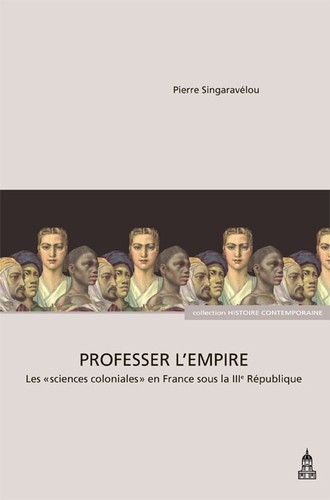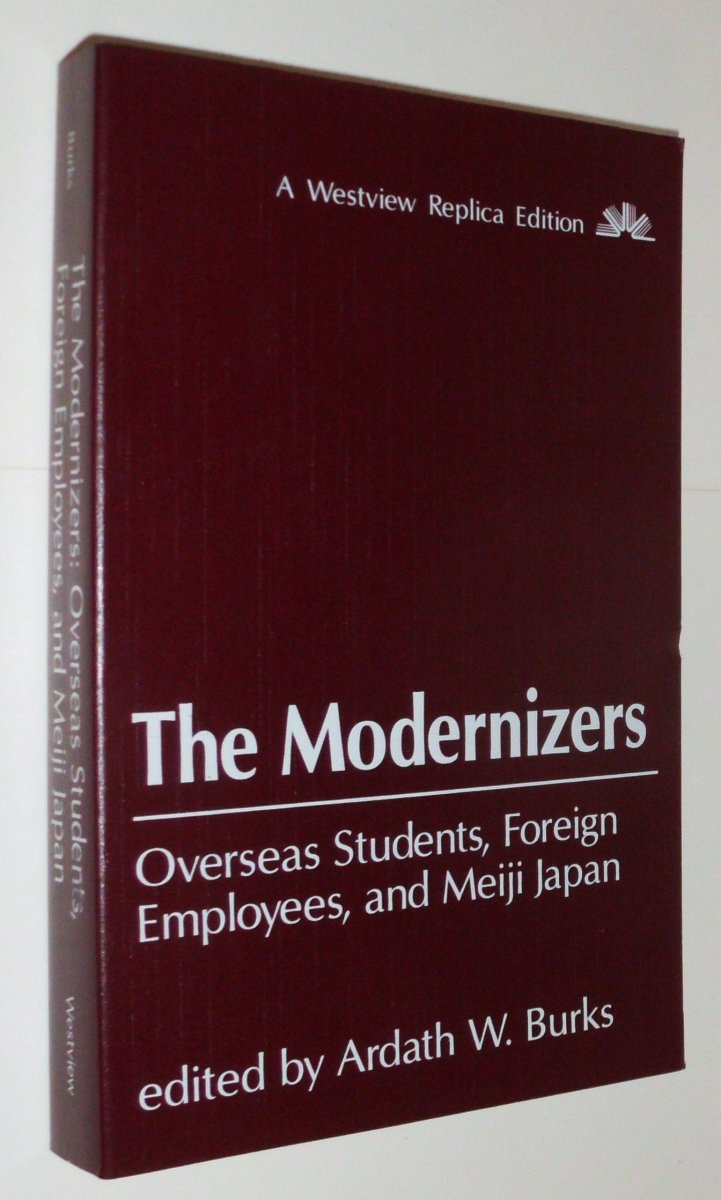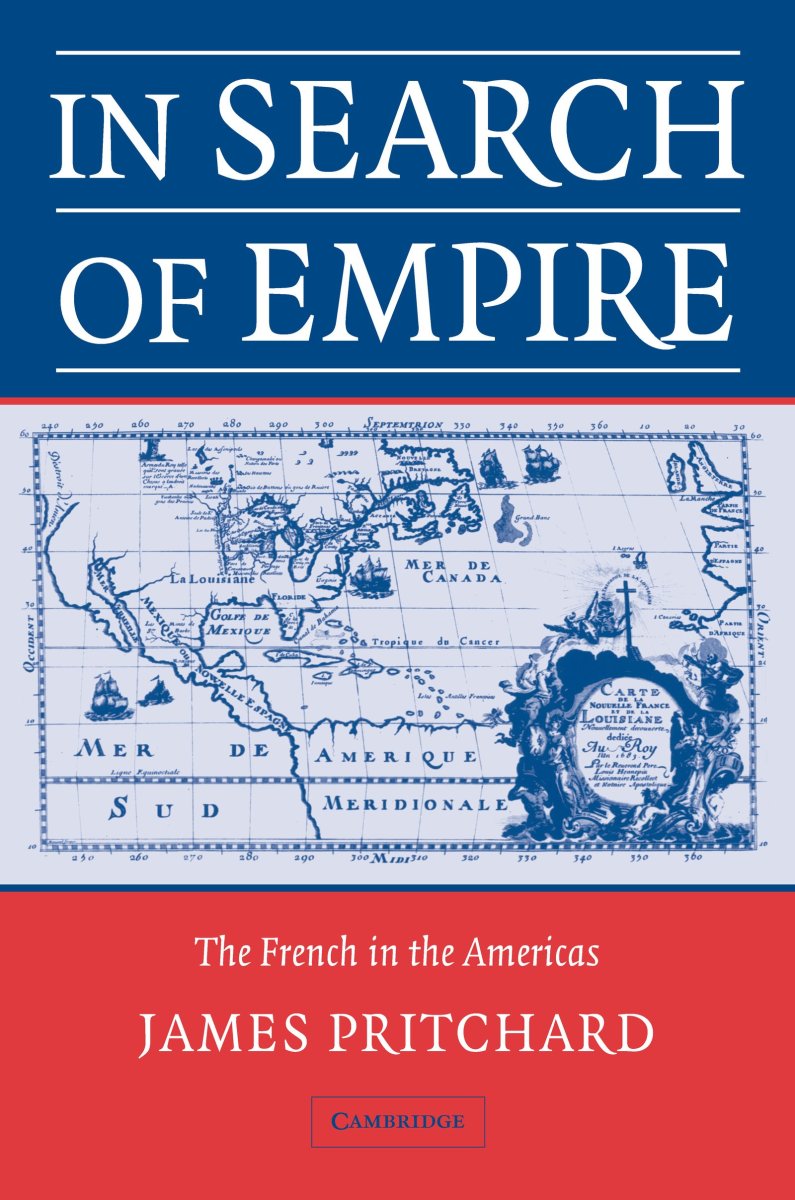Professer l'Empire: Les Sciences Coloniales en France sous la IIIe République

Studies of colonialism and its link with science in the 19th and the 20th centuries are not all that rare, but less common are those which focus on developments in the metropole concerning the actual education and implementation of colonial studies during the period, especially for those related to the social sciences. Thus why the French book Professer l'Empire by Pierre Singaravelou can appear as both a fascinating new aspect of the empire and one which is removed from the more romantic elements of the development, chances, and havoc wrought by colonial scientists on the ground in such a wide array of changes, as it instead focuses on the institutions in which they worked and their metropolitan studies.
The introduction to the book lays out the way in which colonial science has been interpreted, particularly with the work of of Said, seeing it above all else as a tool of Western essentialization of other societies and power relations, and in essence, as not really science. This volume doesn't make an effort to rehabilitate colonial science, but rather to look anew at it.
The first chapter concerns the network of universities and schools devoted to colonial science and their institutionalization. It focuses upon the practical training for future administrators and colonial studies, and some of the debates over this (such as the centralization of the formation of colonial bureaucrats at the Ecole coloniale), as well as what subjects were studied and what schools were created with a colonial emphasis. These included both metropolitan schools, and colonial schools, such as the Université d'Alger and various écoles in Hanoi.
The second chapter focuses upon the type of professors and savants who were actively involved in the colonial sciences. A rare few included actual colonized people themselves who managed to reach the peak of the system. An increasing professionalization occurred as there was a need to be a full fledged professor to analyze data, even if amateurs continued to collect data in the field. University produced experts went to work often in the colonial administration, as well as trying their chance in politics, even if not always with success.
The third chapter reflects upon the professionalization of the colonial career and what sort of jobs and paths were followed by them, as well as who exactly the professors were and what type of origins they were. The transformation meant that professionals were now tasked with refining and compiling data and information on the colonies, while amateurs were still able to collect it. However, the existence of alternative networks for information and Intellectuals became involved in politics, although they faced some of the normal populist prejudice common to people of their ilk trying to enter this field. Others entered the revolving doors of finance and business.
The fourth chapter examines some of the actual work of and the intellectual networks created by the French colonial scientists, such as the various societies which had been created and which dealt with colonial affairs, and different theses and writings produced. The Académie des sciences coloniales presented a crucial centerpiece of these societies, providing a common ground and nexus for discussion. Other elements of this colonial civil society included various literary prizes and competitions, and of course, reviews and journals. Various cities had localized colonial societies, sometimes defined by different interests, such as Lyon and its interest for silk due to its extensive local silk weavers.
A final chapter in the first part of the book is devoted to a perceived crisis in colonial education which happened during the 1920s. Despite the existence of a widespread network of colonial schools, they were often still little known to the public. Financing problems also intensified during a period of financial retranchement. There was trouble finding employment for the graduated colonial studies diplomees. And in the secondary stage of education, focus on colonialism was limited. Although some of these problems were exaggerated by the promoters of colonial science in order to attract support and sympathy to their discipline, there was nevertheless some sort of crisis.
In the second part of the book, the actual studies which the colonial scientists and professors undertook is analyzed, starting with geography. The subject of colonial geography was a controversial one, particularly upon terminology terms, such as between colonial geography and the geography of colonized countries. An argument advanced by the book is that it is a false dichotomy to perceive non-colonial geography as being immune to relativism and focus on human characteristics as influencing civilizational development while by contrast assigning this mode of thought purely to colonial geographers. Geography was a vital part of colonial studies, and its rival modes of thought, with a focus on infrastructure and development and a belief in primordial differences and environmental determinism, marked it and were never quite resolved.
This is followed by a chapter devoted to history as studied by the colonialist professors. This was a subject where their numbers, influence, and professionalization were to some degree limited. Much of the time they focused on a rather laudatory description of colonization, and the tension between portraying the empire in a positive light, and by contrast, honestly examining the colonial societies and their own history. In fact, their own perceived "lack" of history, exemplified by the French proclaiming that Algeria was created by them or the relative lack of history of Indochina, defined as a fusion of Indian and Chinese civilizati energy along the Vietnamese lowlands, sometimes did lead to the occasional advances with a focus on oral history, and comparative studies between societies and empires.
After this comes a chapter on colonial legislation and economy in colonial government. Most economists ultimately came to support French colonization, despite a perception that they were opposed to it. Studies of law had to confront the problems posed by the contradiction of the French system, a Republican empire based on the universal rights of man which denied these rights to its colonial subjects, with distinctions between colonized subjects and French citizens. A large number of theses were produced in any case on the French empire and surrounding empires in the subject of law.
Moving on to the subject of "colonial psychology", the principle element of this hazy and ill defined discipline based itself upon the analysis of the inherent psychological differences between people. The focus upon the soul of different people led to assumptions such as the collectivism and the idea of the "crowd" being the defining psychological feature of other races, particularly among Blacks. This emphasis upon psychologies of races and of people was rarely challenged, with only a few students placing their focus on the individual instead. As with other colonial experts, focus was put on geography as an explanation for psychological differences. Ultimately its limited viability was destroyed by the Second World War and the resultant suspicion of this essentialization of peoples.
A conclusion advances the argument that colonial education was, contrary to what was claimed at the time, extensively developed and present in France. Colonial education rarely produced the type of laboratory of modernity praised by its promoters, but the Third Republic was nevertheless a key moment of the colonial turn of social sciences.
Review
With some books, it is easy to see that an incredible amount of work went into them, often testified by bountiful pages of references, legions of text scrolling across the page beneath the regular text. This book is clearly one of them, and it studies its subjects with an exacting amount of detail, providing a thick, dense, and impressive book which ranges up to nearly 400 pages upon its subjects. The sheer degree of complexity and completeness speaks for itself in the book, and can make in of itself the volume a useful reference book for studies of French colonial scientists, seeing as it lists such a huge number of them and their theses.
Along the way, the book should be congratulated for its internal consistency, as it looks at the different ways that colonial science manifested itself, and explores their inevitable contradictions, and yet also to what extent they had validity - a look which neither dismisses nor uncritically accepts, but instead which carefully analyzes and distills new truth and information. It has extensive acquaintance with the various principles elaborated, such as a rather constant theme of the difference between Saint Simonien schools of development and by contrast the organicist and inherent approaches to mentalities. Sometimes, for the amateur, I believe that it could do with greater explanation of some of these elements, but the depth and knowledge of the writer is to be commended.
It has a tremendous amount of detail, and does well to both provide this on a wide array of subjects of its chosen field, while not frittering this away into too many avenues, continuing to focus on social history. My favorite section in particular is the chapter dedicated to colonial psychology, which I feel provides by far the most interesting field, and one which demonstrates well the way in which colonial sciences were founded, were discredited, and left their heritage to future fields - such as human geography. Fascinating in its look into the actual thoughts put forth by the scientists and the intellectuals involved, it also discusses the state of the field and its transformation in intriguing detail.
This being said, the actual selection of the three colonial sciences studied - psychology, geography, and history - seems rather arbitrary. Some of the famous colonial sciences, anthropology, ethnology, linguistics, archeology, are not mentioned, and there seems to be no explanation for why these specific three fields of geography, history-law, and psychology are placed into full spotlight to the expense of the others.
Furthermore, the two sections of the book, with the first relating to institutional organization, and the second relating to scientific organization, are ones which are discordant, and not well linked. There could be greater analysis devoted to how the development of the first section and the institutionalization of science helped to alter and to change, to develop and influence, the scientific output thus produced. And yet the two to me seem to have almost little to do with each other, bound together in the same book. Both of them are interesting, but more effort should have gone into linking them together well.
Nevertheless, it makes for a highly informative book with a consistent internal narrative, reflecting the internal divisions produced in French colonial scientists between universalism/development, and the focus upon organic and intransmutable differences between peoples. It shows the ways in which over time there steadily developed a growing sophistication and professionalization as part of the colonialist sciences, despite the problems along the way, particularly during the 1930s. And it also demonstrates that despite the flaws, colonial science also sometimes provided valuable input for future developments, such as an increased focus on oral studies stemming from historians, to relationships between colonial psychology and emergent fields of human geography. For a look into the highly specialized fields of French higher education relating to colonial studies, it makes a valuable resource - that most might not find it terribly interesting doesn't detract from this. For a scholarly resource, it is an excellent piece of work.
© 2019 Ryan Thomas









